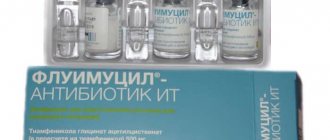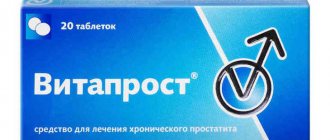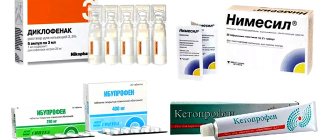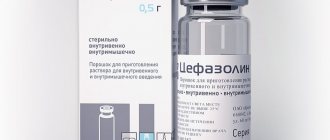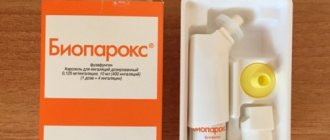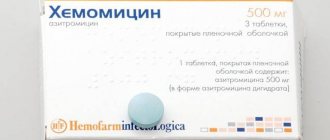What diseases do you think are the most dangerous for humanity? Most likely, most will name heart disease or cancer. Of course, these illnesses are very insidious. But despite the progress of medicine, infectious diseases continue to be one of the most dangerous diseases for all humanity. This is due to the high contagiousness of infections - the ability to involve a large number of healthy people in the process within a short period of time. Today, infectious diseases account for at least 60% of the total number of registered diseases. Every hour, more than one and a half thousand people die from them in the world, and more than half of them are children under five years of age.i According to forecasts of the World Health Organization, in the 21st century, infectious diseases are once again striving to occupy a dominant position in the structure of general pathology, which should encourage humanity to finding effective solutions to this problem.
- Why are cold remedies so popular?
- The most common symptomatic remedies
- Can I take the drug without consulting a doctor?
- Antiviral and anti-cold medicine: what to choose?
The term “infectio” was first introduced into medicine in the 19th century by Christoph Hufeland, physician to the Prussian king Frederick William III. At that time, this term was used only to refer to sexually transmitted diseases. Later, as medicine developed, scientists came to the conclusion that infection should be understood as the introduction and reproduction of a variety of microorganisms in a macroorganism. Such an introduction triggers the process of a complex set of interactions between bacteria, fungi, protozoa, viruses and prions in the host’s body, which leads to the carriage of pathogens or severe disease.
The rapid development of medicine and the joint efforts of doctors from many countries have achieved impressive results in the fight against infections. Among the main achievements in the field of infectious pathology are the elimination of smallpox and the victory over epidemics of plague, cholera, typhus and typhoid. In addition, diseases such as whooping cough, polio, mumps (mumps) and diphtheria are much less common today.
However, unfortunately, there are still a large number of unresolved problems of infectious pathology, including the emergence of microorganisms that constantly mutate and become resistant to colds and other medications. Another pressing problem is the difficulty of registering infectious agents. According to one of the scientists' hypotheses, a number of so-called somatic diseases are considered non-infectious, while there is significant evidence according to which many human diseases that were previously considered non-infectious turn out to be caused by various fungi, viruses and bacteria.ii
And of course, today one of the most exciting problems affecting all of humanity is diseases caused by previously unknown infectious agents, which for some reason have crossed the interspecies barrier between animals and humans. According to many scientists, this in 2021 led to the development of the coronavirus pandemic COVID-19 , caused by the SARS-Cov-2 virus, where SARS is severe acute respiratory syndrome.
Thus, we can conclude that infectious diseases are natural in the history of mankind; they are continuously formed and reborn. Some diseases are replaced by others, which forces scientists to constantly search for new methods of fighting infection and preventing infectious diseases.
Types of infection
By its nature, a cold occurs due to infection with a virus of one type or another, but as the disease progresses, a bacterial component can also be added to it. For this reason, colds are divided into two types:
- Viral.
- Bacterial.
In the first case, the disease can be caused by one of more than two hundred viruses. Finding a medicine for a specific one is quite problematic. The main objectives are to prevent the development of complications and alleviate the patient’s condition. Medicines used to eliminate the symptoms of the disease, antiviral and immunomodulatory drugs are used. Antibiotics are powerless here, since there is no bacterial infection. Folk remedies can also be used in combination as auxiliary methods of treatment.
If the disease is bacterial in nature, then the main means of control are antibiotic drugs. Such pathologies account for up to 30% of all colds. They can be distinguished by yellowish or greenish nasal discharge and expectoration.
Some suffer from acute respiratory infections quite easily, experiencing only a slight malaise, while others are seriously ill and have all the symptoms. Therefore, the best antiviral remedy is prevention.
conclusions
Having carefully analyzed the available materials on antiviral drugs that are recommended by their manufacturers for the treatment and prevention of ARVI, we have formulated several conclusions.
- It makes no sense to spend money on drugs whose effectiveness has not been adequately proven.
- Even when the effectiveness of a drug has been proven (as in the case of Remantadine), there is always the possibility that taking it will not give the desired effect due to resistance in a particular strain of the virus.
- When using an antiviral drug to treat ARVI, you can never be completely sure whether it helped the patient or whether the disease went away on its own.
- Based on the pharmacological action of such drugs, we can conclude that they will only be effective for a person with a strong immune system. However, if the immune system is strong, then there is no need to use any medications for ARVI.
Causes of colds and ways of infection
During the cold season, acute respiratory diseases are common and quite common. Children can get sick up to 8 times a year, and adults can’t escape this, although they get sick less often.
What causes frequent colds?
- Frequent stress.
- Diseases that suppress the immune system.
- Poor nutrition.
- Low physical activity.
- Lack of fresh air when the room is not ventilated. In this case, in stagnant and especially dry air, the virus multiplies faster.
- Cold. In itself, it is not the culprit of the disease, but acts as a provocateur, since hypothermia of the body provokes infection. If, even in the most severe frost, a person is dressed for the weather and does not freeze, then the risks are not so great.
- The presence of parasites in the body. The connection with colds is logically explained by the fact that parasitic infestation weakens the immune system, so a person becomes susceptible to any kind of infection.
It can be noted that most of the reasons have one thing in common - weakened immunity. If the body’s defenses are strong enough, then it will independently cope with the virus that has entered it and the person may not even know that he has been infected, since he will not feel any symptoms and the disease will pass without a trace.
As for the routes of infection, the most common is airborne, and only then household. Since the disease is very contagious, it can be transmitted through simple interaction, when people stand too close to each other, and children play among themselves in a close circle. Also, a person who already has a cold can infect someone else by coughing and sneezing, especially if they do not wear a mask or cover their mouth with a tissue. Microparticles of saliva, sputum and mucus, getting on the mucous membranes of a person, enable the virus to enter the body and infect it.
Infection is also possible through objects, since almost any surface that a person with a cold touches retains the virus for several hours. Therefore, it is extremely important in the autumn-winter period, when the incidence of acute respiratory infections and acute respiratory viral infections peaks, to wipe all items with antiseptic wipes and gels. This is especially true for children’s toys and household items, since a child whose immunity is not yet fully formed has a high risk of complications even after a common cold.
Antiviral drugs for HIV
Everyone knows that the human immunodeficiency virus cannot be cured, but there are special medications that can support the immunity of patients with this disease.
A group of drugs intended for the prevention and treatment of HIV infections are called antiretroviral chemotherapy drugs.
WHO lists the most effective antiviral drugs for HIV as:
- Zidovudine;
- Abacavir;
- Lamivudine.
In 1987, 4 years after the discovery of the human immunodeficiency virus, the Zidovudine formula was developed. It is considered the first antiretroviral drug [Verified source], which became the founder of this group of drugs.
Zidovudine is well absorbed from the gastrointestinal tract and reaches maximum concentration in the blood within 0.5-1.5 hours. Its effectiveness has been confirmed in a number of randomized clinical trials.
This drug is not recommended to be combined with paracetamol, since taking them together increases the likelihood of neutropenia (decreased number of white blood cells). By the way, our previous article was devoted to the topic of the compatibility of paracetamol with ibuprofen and other drugs.
Remember, no medicine can cure HIV. The group of antiretroviral drugs only supports the immune system, preventing it from weakening completely.
Symptoms and course of the disease
The signs of infection with any type of respiratory virus are quite similar. Depending on the body’s resistance, they can appear either a few hours after infection or after a couple of days.
How does a cold manifest itself?
- The person feels chills and is unable to warm up.
- A runny nose appears. If the nasal discharge is clear or white, then this is a sign of a viral disease. If they have acquired a yellow or green tint, this indicates a bacterial infection.
- Sneezing, which often occurs with nasal congestion.
- Increased body temperature. This symptom may not be present. But if the high temperature lasts longer than 3 days, then this indicates either a bacterial infection or the presence of complications.
- Weakness, drowsiness, lethargy and nausea. These are signs of natural intoxication of the body during any infection.
- Headache. Most often localized in the temporal lobes.
- Discomfort when swallowing and sore throat.
- Cough.
- Pain in the chest. They appear with a strong cough, which indicates the presence of a large accumulation of sputum in the bronchi or lungs.
With a bacterial infection, most symptoms intensify or last a long time, and the pain becomes more intense.
Typically, symptoms occur in the standard order:
- The mucous membrane of the pharynx becomes inflamed, as it is the first obstacle to infection. There is a sore throat and discomfort when swallowing and eating.
- On day 2-3, inflammation spreads to the nasal mucosa. The patient feels stuffy and begins to sneeze. A runny nose appears.
- After another couple of days, against a background of sore throat and sore throat, a cough occurs, as the cough receptors are irritated. The deeper the virus penetrates into the bronchi, the stronger the sputum production becomes and the cough turns from dry to wet.
During the period of illness, the body experiences stress and increased stress on the immune system, so the person becomes lethargic, depressed, and sensitive to light. Weakness lasts for the first few days, especially in the presence of elevated body temperature, and then subsides as you recover.
Unobvious effectiveness
According to the chief physician of Medsi Clinical Hospital No. 1, Tatyana Shapovalenko, doctors from their company began working with Areplivir 1.5 months ago. But the drug did not show any unique effectiveness during this time. Although, judging by the description, it selectively affects the RNA of the virus and can be useful on an outpatient basis at the very beginning of the disease and in mild forms of the disease.
Patients are admitted to the inpatient unit not on the first day of the disease, but already with a severe form. Treatment is prescribed comprehensively.
“In a hospital setting, it is extremely difficult to assess the effectiveness of this particular antiviral drug. Most likely, we did not obtain reliable effectiveness of this analogue of Favipiravir. But our sample is inpatients,” noted the head physician.
Contraindications to the use of Areplivir include severe liver, kidney and heart failure. It is prescribed if a smear test is positive for coronavirus and characteristic symptoms appear.
How to treat a cold
We have already said that the best antiviral remedy for both children and adults is prevention. Staying cool, getting enough sleep, eating a balanced diet and staying hydrated are general recommendations to support your immune system to fight colds during the cold period.
But what to do if you are already sick? We will give some recommendations on how to cope with a viral infection as soon as possible.
- When the first signs of a cold appear and there is no fever, you need to take a hot shower to warm your chest and throat. You can take a hot bath and drink hot herbal tea at the same time. Before filling the bathtub, add 3 tablespoons of salt. Separately chop the garlic and ginger and brew them with boiling water. After half an hour, the pulp must be wrapped in gauze and placed in a bath of hot water. Pour the infusion there. Such bathing gives a strong warming effect and activates the body's defenses.
- It is good to use Derinat for treatment. This is an effective drug to combat viral infections. It is used both for preventive purposes and for treating someone who is already sick. It comes in the form of a spray and drops, so you can choose a convenient format for an adult or a child. Derinat heals inflamed mucous membranes and restores their protective properties. The product helps suppress the spread of viruses and activate the immune system; it is approved for use in children from the first day of life. Read more about the drug and how it works on our website.
- Treatment should begin with the appearance of the first symptoms of illness. During this period, the body needs to be supported. In addition to medicines, a variety of fruits, herbal infusions and teas are used to saturate them with vitamins and microelements. Some herbs have anti-inflammatory, expectorant, antibacterial and sedative properties.
- If you don’t have an appetite, then you shouldn’t overpower yourself; you can limit yourself to light snacks of vegetables and fruits, cereals and broths.
- But you need to drink a lot. Any liquid. Because it helps rid the body of toxins faster. Natural juices, compotes and fruit drinks, plus everything else, also make up for the lack of vitamins during illness.
- It is important to ventilate the room and humidify the air in it - this helps to quickly rid the house of infections.
- There is no need to immediately bring down the temperature if it does not reach extremely high values, since it is an indicator that the immune system is doing its job and the body is fighting the virus on its own.
- Pine and citrus essential oils help with nasal congestion. Inhalations with them can relieve symptoms and reduce runny nose. Healthy foods for colds include honey, onion, garlic and aloe.
- During illness, it is better to give up bad habits and start taking additional vitamins. This will help the body cope with a cold faster.
- Compresses and rubbing with badger and goose fat, according to our grandmothers, helps to better discharge sputum when coughing, and black radish helps eliminate it.
- You can make foot baths with mustard powder and hot water, as well as with essential oils of cedar, pine and clove. It is better to do them at night, as they allow you to fall asleep faster, and also relieve acute coughing attacks, nasal congestion and improve breathing in general.
These recommendations only complement the treatment prescribed by a specialist, so it is important to consult a doctor for an individual prescription. And, of course, relax more, sleep and walk in the fresh air.
As for medications, doctors often prescribe Derinat as a proven remedy for colds. It strengthens the immune system, is suitable for any age and is available in different formats.
What other cold remedies are there:
- Medicines based on interferons. These are proteins synthesized in the human body that protect cells from the penetration of viruses.
- Narrow-acting antiviral drugs. Each drug in this category is used for certain viral diseases and does not have a wide spectrum of action. Therefore, it is important to use such products only after an accurate diagnosis and as prescribed by a doctor.
"Derinat" has a wide spectrum of action. It works in three directions at once: it helps to suppress the viability and reproduction of viruses, activate the immune system and improve the protective properties of the nasopharyngeal mucosa.
How to cure the herpes virus: effective antiherpetic medications
To combat the herpes simplex virus, WHO [Official source] recommends using the most effective antiviral drug - Acyclovir. Other drugs, such as Penciclovir, Famciclovir, Valacyclovir, have also successfully completed clinical trials. They stop the synthesis of DNA molecules in herpes pathogens during their reproduction period. However, these antiherpetic medications have no effect on viruses that are in a state of inactivity.
Acyclovir has four forms of release: tablets, injections, ointments and creams. He is considered the founder of antiherpetic drugs. The antiviral effect is exerted by acyclovir triphosphate, which acts on cells affected by herpes. The drug in question has low toxicity.
Acyclovir has an effect on herpes simplex virus types 1 and 2. The chickenpox virus is 20 times less sensitive to the drug.
The indication for the use of antiviral drugs for herpes may be an infectious disease caused by the herpes simplex virus (HSV) or a pathology caused by chickenpox (Varicella Zoster Virus).
In most cases, HSV can appear if a person has a weakened immune system for a number of reasons. In 6-7% of cases, when the herpes virus manifests itself and immunity is reduced, the drug may not have any effect.
For each type of herpes virus, there are medications that can have an effect in one case and be ineffective in another, so to treat this pathology you should contact a specialized specialist.
Myths about colds and what not to do
First of all, you should not blindly believe your grandmother’s advice and neglect consulting a doctor. The rest you need to remember:
- Treatment with antibiotics is pointless for acute respiratory viral infections if there is no bacterial infection.
- Traditional methods should be used as a complement to the main treatment and only after consultation with a therapist.
- You should not mindlessly drink pharmacy vitamins, as their excess also threatens with unpleasant consequences.
There are also several ingrained myths regarding the treatment of colds:
Myth 1. You need to close all the windows to avoid drafts, as it can blow out.
Reality . In fact, fresh air helps rid the apartment of viruses.
Myth 2 . You need to dress as warmly as possible.
Reality . Excessive overheating of the body is no better than hypothermia. Both should be avoided and dressed for the weather.
Myth 3. A sick person should not take a shower.
Reality . When the body fights an infection, it sweats, thereby getting rid of toxins. And they need to be washed off.
What is in doubt?
Currently, modern evidence-based medicine dominates the world. If you don’t go into the scientific jungle and put it simply, then the effectiveness of any drug must be proven in a generally accepted way. That is, appropriate clinical studies must be conducted.
Remember that today most antiviral drugs used for ARVI have not undergone proper clinical trials. In other words, their effectiveness has not been proven by research.
There is also indirect evidence that in many cases consumers in Russia and the CIS countries are simply being deceived. In most so-called civilized Western countries, antiviral drugs are not used for ARVI. Moreover, they are not even sold in pharmacies.
However, it is worth noting the fact that there are state pharmacological control authorities that check all antiviral drugs before they hit pharmacy shelves. If you question their competence, then this means suspecting the entire public health care system as a whole.
We believe that each person must decide for himself which side is right.
It should be noted that all such drugs that can be used in connection with ARVI can be divided into 3 large groups:
- vaccines that are introduced into the human body and should promote the formation of immunity against a specific virus;
- immunostimulants - medications that should temporarily strengthen the immune system;
- antiviral - drugs that should suppress the reproduction of the virus in the human body.
Complications after ARVI
Despite the fact that the cold is a common disease and is tolerated quite easily with a developed immune system, there is a possibility of unpleasant consequences occurring after the illness.
Those most at risk for complications are:
- Young children aged one to three years.
- Elderly people over 60 years of age.
- People with chronic pathologies such as diabetes, diseases of the cardiovascular system and others.
- Patients after surgery.
- People with impaired immunity (HIV and autoimmune pathologies).
A history of acute respiratory viral infection can leave its mark not only on the respiratory system, but also on other organs.
Possible complications:
- Sore throat or tonsillitis. The pharynx and tonsils suffer, on which, after a bacterial infection attaches to the virus, a purulent white coating forms. Sore throat, in turn, can cause complications in the heart and kidneys.
- Inflammatory processes in the nasal area provoke chronic rhinitis and sinusitis, affecting the paranasal sinuses. The danger lies in the proximity of the area of inflammation to the brain. In advanced cases, this can lead to inflammation of its membranes and death.
- Otitis. Manifested by pain in one or both ears. Can lead to complete hearing loss if not treated promptly.
- Obstructive syndrome. It occurs when there is a bacterial infection that has descended into the bronchi. People with existing chronic pathologies of the respiratory system are most susceptible to this complication.
- Abdominal syndrome. Complications on the digestive tract. The main symptoms are loose stools and abdominal pain with a common cold.
- Pneumonia. A serious complication that occurs when an infection occurs in the lungs. In this case, they may not work at full capacity, which can be fatal.
- Inflammation of the urinary system can also be a consequence of a cold. The first warning signs are pain in the lower back and when urinating, as well as swelling of the face and limbs.
- Rheumatoid arthritis, which affects human joints. He also experiences pain in his knees and feet. Over time, the complication can spread to the heart, liver and kidneys.
Indications and contraindications
Currently, three anti-coronavirus drugs are produced in Russia - Areplivir, Coronavirus and Avifavir. The active ingredient in them is the same - favipiravir, the same as in their Japanese “progenitor” of the same name, Dmitry Aizikov, deputy chief physician of the Odintsovo Regional Hospital, told 360.
If there is an increase in temperature, cough, shortness of breath, weakness, change in sense of smell and other symptoms, a person should call a doctor. They will take swabs and determine whether the person will be treated at home or in a hospital and what treatment needs to be prescribed.
“They have one indication registered now - covid infection. Indications are determined by the presence of the disease. Like any antimicrobial or antiviral drug, the patient does not prescribe it himself, but only the doctor,” the doctor emphasized.
Areplivir has few contraindications, according to Aizikov. For example, pregnancy, the presence of severe kidney and liver diseases and age under 18 years. Although the latter is not so much a contraindication as the lack of full-fledged studies with children.
Features of treatment and when to see a doctor
Many diseases can start out like a common cold. Therefore, it is important to recognize this or that pathology in time. Some self-medicate at their own risk. Here are some situations when you should definitely see a doctor:
- One of the symptoms began to seriously predominate.
- Severe pain appeared.
- There are problems with breathing, it is difficult to inhale.
- Pain in the chest area.
- Cold symptoms do not go away for more than two weeks.
You also need to understand that pregnant women, children and the elderly should be more attentive to their health, since another more serious disease may be hidden under the guise of ARVI.
For pregnant women, especially in the first trimester, it is better to avoid medications unless absolutely necessary and to be treated with traditional methods.
Essential oils should not be used by children under 3 years of age. This can aggravate the disease and cause a severe allergic reaction.
Payment for treatment
Hospitalized patients, the deputy chief physician specified, will receive the drug free of charge. And if a person is being treated at home, but there is no money to buy medicine, then “he must go to a hospital.”
“If a citizen cannot afford it, but there are indications for hospitalization, he will be hospitalized. And the doctor will treat him free of charge with everything that he is entitled to and that is available. Well, we don’t have such problems. There are not only direct antiviral drugs, but also genetically engineered drugs - both Russian and foreign. And they didn’t tell anyone: “Go buy the drug,” the doctor added.
According to Aizikov’s forecasts, the cost of Areplivir will not decrease until the manufacturer recovers production costs. Or until the medicine is included in the list of vitally important drugs. According to the specialist’s forecasts, the drug, upon confirmation of the clinical effect in practical healthcare conditions, will be included in the list of vital and essential drugs
What is the problem with research on antiviral drugs?
As evidence of the supposed effectiveness of these drugs, the results of clinical studies published in Russian-language medical journals are often cited.
There are no reliable reasons to consider Kagocel an effective means of preventing or treating colds. Accordingly, a sane person should not use it.
Vasily Vlasov, doctor, doctor of medical sciences, professor at the Higher School of Economics, president of the Society of Evidence-Based Medicine Specialists.
The first thing you need to pay attention to is that many of these links do not lead anywhere, that is, the studies mentioned cannot be found anywhere.
In its article, the Society of Evidence-Based Medicine | Looking for Kagocel. Vasily Vlasov criticizes two available studies that allegedly prove the effectiveness of Kagocel. In fact, these studies contain a wealth of evidence of poor practice, are sponsored by manufacturers, and are even accompanied by promotional materials.
Didn't prescribe any medications
How many parents who called a doctor to see their child with a fever and cough are ready to accept this situation: the pediatrician examined the little patient and... did not prescribe any medications? But, if this is your case, know: you are lucky to have a doctor.
In 2021, new clinical guidelines for the treatment of ARVI, developed by the Union of Pediatricians of Russia, were approved. Most of them are devoted to what NOT to do when you have a cold. The main thing is that there is no need to treat, paradoxically as it may seem.
“ARVI is the most common reason for the use of various medications and procedures, most often unnecessary, with unproven effects, and often causing side effects. Therefore, it is very important to explain to parents the benign nature of the disease and the expected duration of symptoms, as well as to reassure them that minimal interventions are sufficient,” the document says.
AiF asked Vladimir Tatochenko, a professor at the National Medical Research Center for Children's Health and an expert at the World Health Organization, to explain why it is not necessary to give a child the usual medications for a cold.
Photo: AiF
The best antiviral suppositories
For people with digestive system problems, it is best to use suppositories to prevent and treat colds. They are quickly absorbed and do not have any effect on the stomach.
Polyoxidonium
According to many users, these are the best antiviral suppositories. The active ingredient is azoximer bromide. The principle of its action is to stimulate the formation of antibodies to the infectious agent, restore and strengthen the immune system, and increase the body's resistance to local infections. Polyoxidonium is used for diseases of both the immune and reproductive systems.
Suppositories, depending on the disease, can be used both rectally and vaginally. For the treatment of acute respiratory viral infections and influenza, they are used rectally. With the standard treatment regimen, 1 suppository per day is prescribed in the first three days, then a suppository every 48 hours. The duration of the course is 10-15 candles. For prophylactic purposes, it is recommended to use 6-12 mg every other day. The course of treatment is 10 suppositories.
Pros:
- relieve inflammation;
- easy to use;
- give quick results.
Minuses:
- high price.
Customer Reviews
Galya V. We use polyoxidonium with the whole family; we have tried other different cold remedies before, but they didn’t help much. But here is a good drug and there are different forms of release, my husband loves pills, but I prefer polycosidonium in the form of suppositories, it seems to me that it is absorbed into the blood faster this way because it doesn’t mix with food in the stomach, wow... I also recommended it to my mother and was also pleased. The last time my husband and I were seriously ill and resorted to the help of polyoxidonium, and after 4 days of taking the medicine, the signs of the disease began to go away and by about 8-9 days we felt healthy. So polyoxidonium is a permanent “resident” of our first aid kit!
Alex S. I bought Polyoxidonium suppositories for the flu. By definition, I don’t like pills; I don’t mind candles. In addition, I wanted to check for myself whether they really help with the flu. In my case, the answer is yes. Perhaps because I immediately started treatment with these suppositories. As a result, I got a sluggish flu without a high fever, more like a cold, which made me very happy. He didn’t even miss work due to illness.
How to choose a drug
In order to correctly choose effective drugs whose antiviral properties will help cure influenza or ARVI, you need to accurately diagnose the disease. After this, you should make sure that there are no contraindications for using the product. It is also important to remember that different medications are used at different stages of a cold.
Take special care when choosing antiviral drugs and then you can help your body overcome a cold in the shortest possible time.
Source: ICD-10
Source: Sologub T.V., Tsvetkov V.V., Golobokov G.S. Possibility of complex therapy of influenza and acute respiratory viral infections with the inclusion of combination drugs. Medical Council, 2015, 16: 103-105.
——————————————————————————————————-

